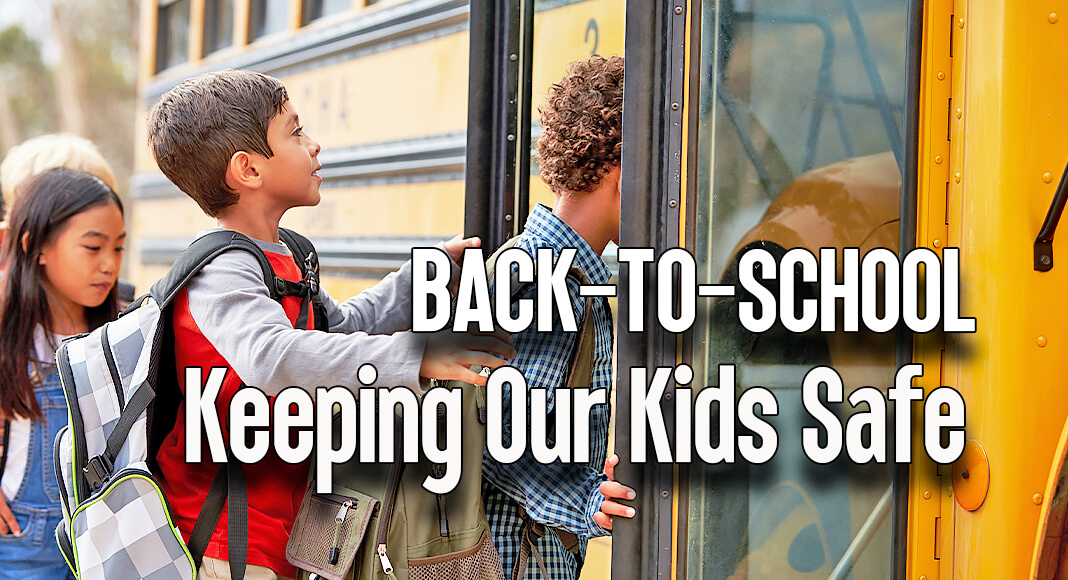
Texas Border Business
AMERICAN RED CROSS — Soon students will head back to school, some entering the classroom for the first time. The American Red Cross, Texas Gulf Coast Region, offers ten ways to help make sure your student is safe as they head back to school for the upcoming year.
“There are some special steps parents of younger kids should take, especially if they have youngsters going to school for the first time,” said Vanessa Valdez, Interim Communications Director, Texas Gulf Coast Region, Red Cross. “They should make sure the child knows their phone number, address, how to get in touch with their parents at work, how to get in touch with another trusted adult and how to dial 911. And teach them not to talk to strangers or accept rides from someone they don’t know.”
Here are more steps to follow to help your child stay safe:
- If your student rides a bus to school, they should plan to get to their bus stop early and stand away from the curb while waiting for the bus to arrive.
- Students should board the bus only after it has come to a complete stop and the driver or attendant has instructed them to get on. They should only board their bus, never an alternate one.
- All students should stay in clear view of the bus driver and never walk behind the bus.
- Cross the street at the corner, obey traffic signals and stay in the crosswalk.
- Never dart out into the street or cross between parked cars.
- If children go to school in a car, they should always wear a seat belt. Younger children should use car seats or booster seats until the lap-shoulder belt fits properly (typically for children ages 8-12 and over 4’9”), and ride in the back seat until they are at least 13 years old.
- If a teenager is going to drive to school, parents should mandate that they use seat belts. Drivers should not use their cell phone to text or make calls and avoid eating or drinking while driving.
- Some students ride their bike to school. They should always wear a helmet and ride on the right, in the same direction as the traffic is going.
- When children are walking to school, they should only cross the street at an intersection, and use a route along which the school has placed crossing guards.
- Parents should walk young children to school, along with children taking new routes or attending new schools, at least for the first week to ensure they know how to get there safely. Arrange for students to walk to school with a friend or classmate.
DRIVERS, SLOW DOWN!
Drivers should slow down as children head back to school. Know that yellow flashing lights indicate the bus is getting ready to stop and motorists should slow down and be prepared to stop. Red flashing lights and an extended stop sign indicate the bus is stopped and children are getting on or off.
Motorists must stop when they are behind a bus, meeting the bus or approaching an intersection where a bus is stopped. Motorists following or traveling alongside a school bus must also stop until the red lights have stopped flashing, the stop arm is withdrawn, and all children have reached safety. This includes two and four-lane highways. If physical barriers such as grassy medians, guide rails or concrete median barriers separate oncoming traffic from the bus, motorists in the opposing lanes may proceed without stopping. Do not proceed until all the children have reached a place of safety.
PREPARE FOR EMERGENCIES Know what the emergency plan is at your child’s school in case a disaster or an unforeseen event occurs. Develop a family emergency plan so everyone will know who to contact and where to go if something happens while children are at school and parents are at work. Details are available at redcross.org/prepare.
TAKE A FIRST AID CLASS Learn and practice first aid and CPR skills by taking a course so you can help save a life. Download the free Red Cross First Aid app for instant access to information on handling the most common first aid emergencies whether it be before, during or after school. You can find it by searching for ‘American Red Cross’ in your app store or at redcross.org/apps.













